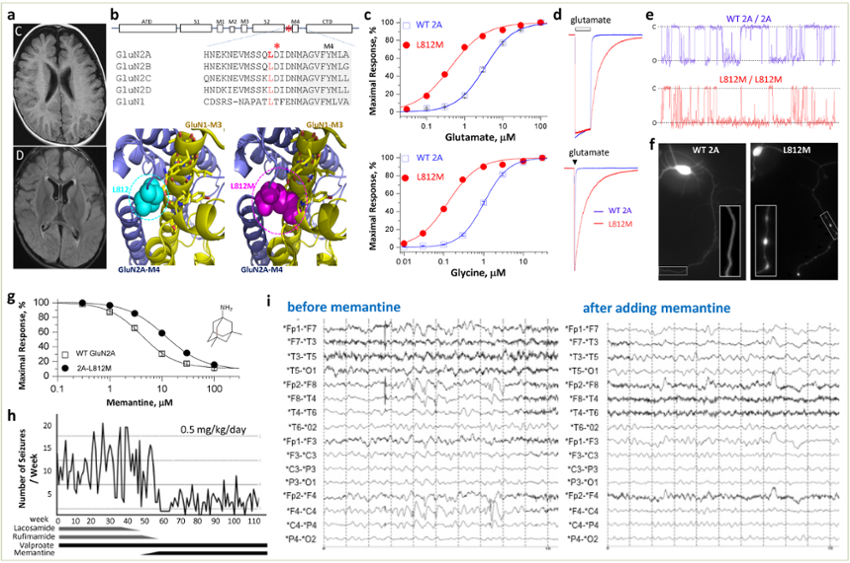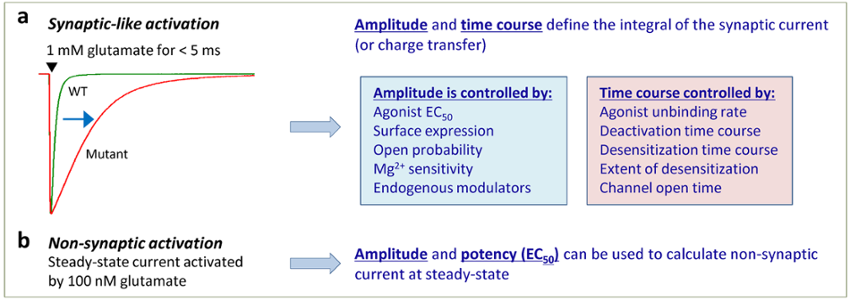Along with stunning advances in next generation of sequencing technologies, a significant number of disease-related genetic variants/mutations in the N-methyl-D-aspartate receptor (NMDAR) gene family (GRIN) and α-amino-3-hydroxy-5-methyl-4-isoxazolepropionic acid receptor (AMPAR) gene family (GRIA) have been identified. These variants have been associated with a wide range of neurodevelopmental disorders, such as epilepsy, attention deficit hyperactivity disorder (ADHD), autism spectrum disorder (ASD), developmental delay (DD), schizophrenia, movement disorders (MD), and intellectual disability (ID). Although the large amount of sequencing information is growing, there is virtually limited functional analysis available to determine how the variants impact the receptor function and functional data was rarely comprehensive and not comparable between papers, which blunts ability to render diagnosis or craft novel treatments tailored to the patient. Our work is to bridge this gap. We are analyzing a large sample of human standing variation to illustrate the landscape of genetic variation intolerance among domains within the GRIN and GRIA genes. We are utilizing a multidisciplinary approach to evaluate functional properties of these variants both in vitro and in vivo (on animal models harboring various disease-associated variants) to provide comprehensive, comparable data on all relevant variants in the glutamate receptor family in a standardized assay format. This will provide the first opportunity to understand the molecular mechanism of phenotypes underlying the variants, which will lay the groundwork for a deeper understanding of the GRIN and GRIA genes in neurological disorders, allow clinical stratification and development of mechanistic hypotheses, as well as lead to a new approach to potential clinical diagnosis. Evaluation of their pharmacological profiles will explore the targeted therapeutic strategies for these neurological and neuropsychiatric disorders and highlight new clues to channel function.



